#tsar alexei i
Text
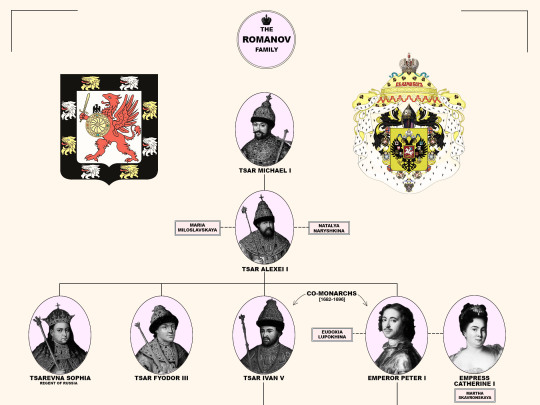
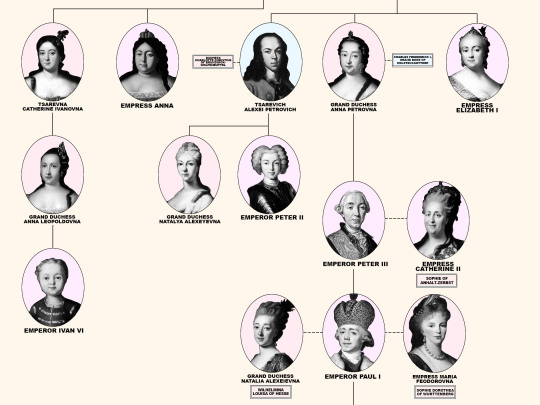
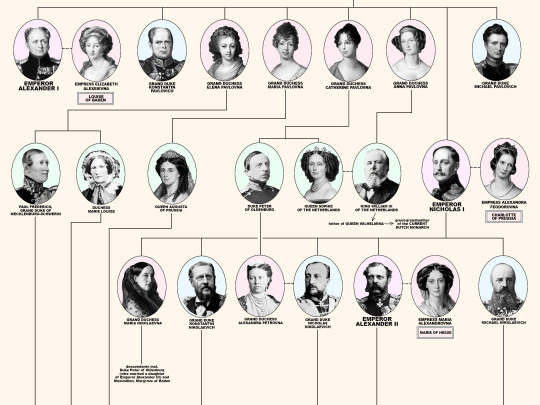
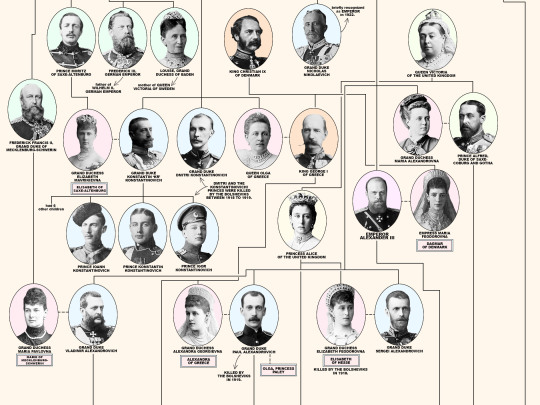
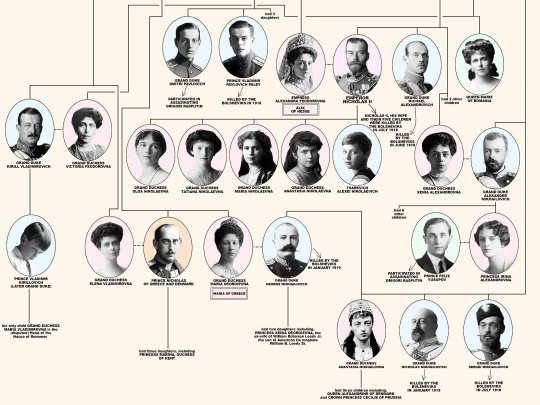
Members of the House of Romanov, the last reigning Dynasty of Russia.
From the first Romanov Russian Tsar Michael I (reigned 1613-1645) until the last Emperor Nicholas II (reigned 1894-1917). Including the 18 members of the house executed from 1918 until 1919; Grand Duke Michael Alexandrovich (13 June 1918). Nicholas II, Empress Alexandra Feodorovna, Grand Duchesses Olga Nikolaevna, Tatiana Nikolaevna, Maria Nikolaevna, Anastasia Nikolaevna, and Tsarevich Alexei Nikolaevich (17 July 1918). Grand Duchess Elizabeth Feodorovna, Grand Duke Sergei Mikhailovich, Prince Ioann Konstantinovich, Prince Konstantin Konstantinovich, Prince Igor Konstantinovich, and Prince Vladimir Paley (18 July 1918). Grand Duke Paul Alexandrovich, Grand Duke Dmitri Konstantinovich, Grand Duke Nicholas Mikhailovich, and Grand Duke George Mikhailovich (28 January 1919).
#romanovs#history#nicholas ii#alexandra feodorovna#olga nikolaevna#tatiana nikolaevna#maria nikolaevna#anastasia nikolaevna#alexei nikolaevich#myedits#peter i#peter ii#Peter iii#peter iii#Catherine the great#tsar alexei i#tsar michael#tsar paul i#alexander i#alexander ii#alexander iii#nicholas i#ancestry
273 notes
·
View notes
Text

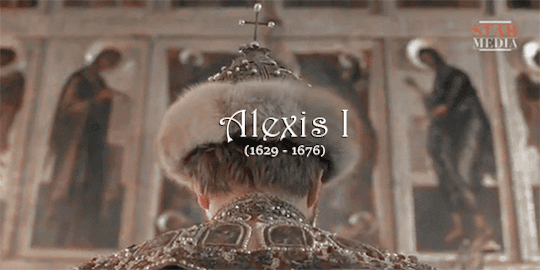


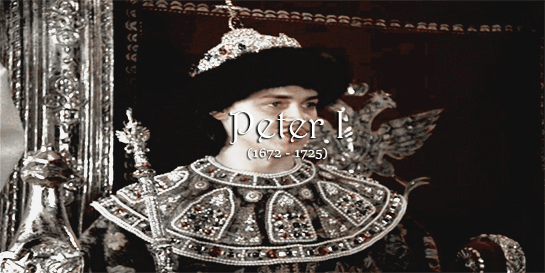
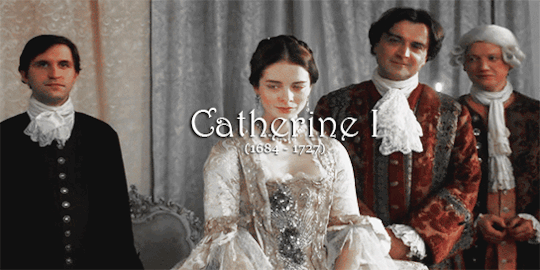
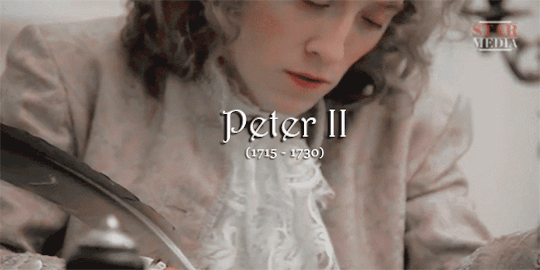

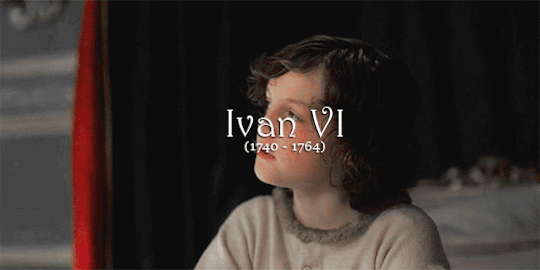


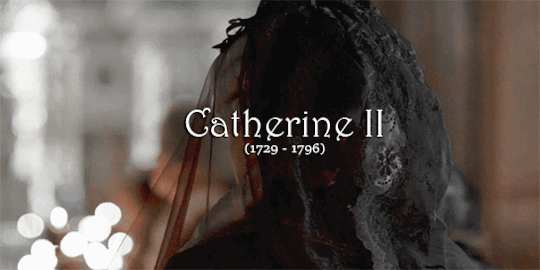
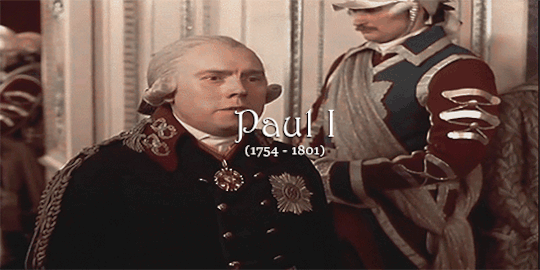

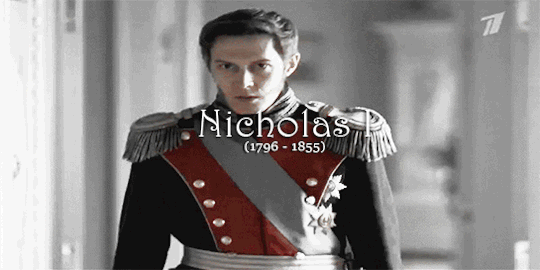


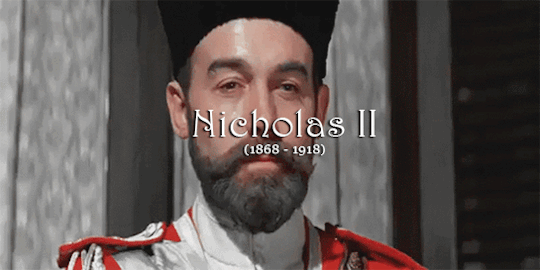
"Over the centuries, the Empire has grown in size and in the number of conquered peoples. It once possessed an area equivalent to one-sixth of the globe, stretching from the Pacific to the German border, on which the sun never set and which was ruled by an autocrat Tsar who owed satisfaction only to God."
The last tsars - a brief untold history about the Romanovs | Paulo Rezzutti.
(Loose translation)
#tsar#tsarina#facts#romanovs#russian history#the romanovs 2013#tsar michael i#tsar alexei i#tsar nicholas ii#catherine the great#tsar paul i#tsar peter ii#tsar peter iii#peter the great#tsarina elizabeth#tsarina catherine i#tsar alexander ii#tsar alexander iii#tsar alexander i#tsar nicholas i#tsar ivan v#tsar ivan vi#tsarina anna#tsarina anna i#tsarina elizabeth i#nicholas and alexandra 1971#zvezda imperii 2008#poor poor paul#roman imperatora 1994#delo dekabristov
183 notes
·
View notes
Text
POV; Where’s Waldo but make it Romanov edition:
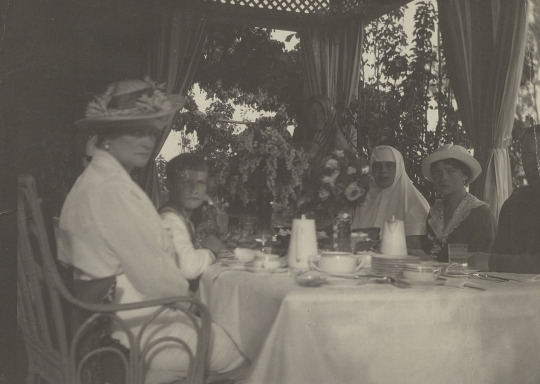
I’ll give you time to figure it out *hint, it’s Olga that your trying to find*
~~~~~~~~~~~~~~~~~~~~~~ahem i present to you~~~~~~~~~~~~~~~~~~~~~
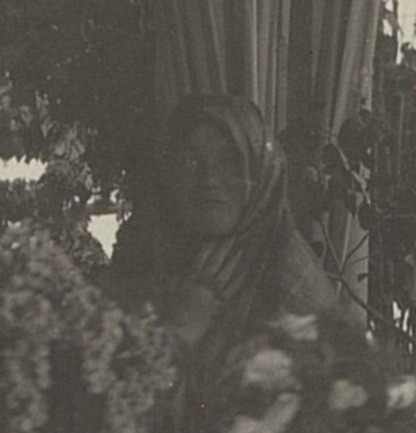
SHE IS IN THE FREAKING CURTAINS! HAHAHAHAHA

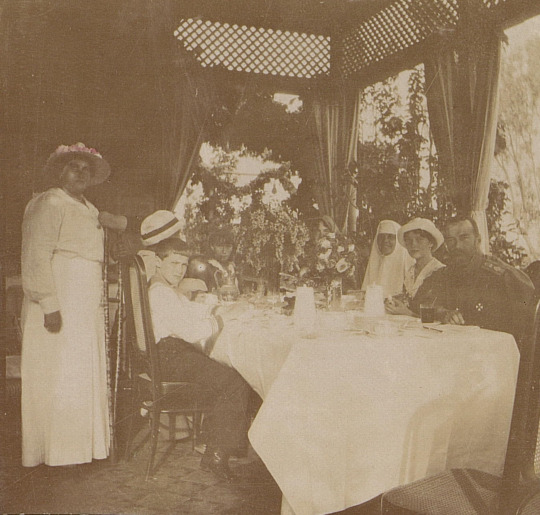
Grand Duchess Olga Nikolaevna hiding in the curtains at Evpatoria in 1916, surrounded by her family, Tsar Nicholas II, Tsarina Alexandra Feodorovna, Grand Duchesses Tatiana, Maria, and Anastasia Nikolaevna, and Tsarevich Alexei Nikolaevich
Also featured is Anna Vyrubova (friend of the family), and Margarita “Rita” Khitorovo (friend of OT and fellow Sister of Mercy)
#BAHAHAHAHAHAHA#😭💀😂🤣#*dies of laughter*#bro these kids were so funny I swear🤣#more evidence as to why she is my fav sister#and why I’m currently obsessed with her for no reason#olga nikolaevna#romanovs being funny#tatiana nikolaevna#maria nikolaevna#anastasia nikolaevna#alexei nikolaevich#otma#romanov#otmaa#alexandra feodorovna#tsar nicholas ii#anna vyrubova#margarita khitorovo#evpatoria#1916#romanovs
64 notes
·
View notes
Note
I know you are a Napoleon x Alexander I. person, but what about Alexander I. x Czartoryski? Do they have a potential as a ship? I am asking because I sometimes feel like they and Elizaveta, Alexander's wife, could've made an interesting polycule had that concept existed back then...
Oh, they definitely have potential! I mean Alexander and Adam were pretty close friends since childhood, he was the first person he called for after becoming emperor, and even his romance with Lisa was “approved” by Alex himself so. Doesn’t get much more poly than that.
Their relationship though is very messy and, to be honest, I don’t know the timeline of it very well. I know Czartoryski was really pissed at him after Tilsit and was even more pissed over the whole Poland situation. But he was one of the few people who could call Alexander out on his bullshit and the latter might not have always listened to him but held his opinion in high regard.
Alexander is pretty shippable though, there’s also Alexei Arakcheev, whose obsessive loyalty to the tsar was only matched by Alexander’s weird attachment to him. I think he wore Alexander’s portrait around his neck, the tsar granted him near unlimited power? Poets were writing biting verses about them even back then (and usually exiled somewhere for it)
I mainly post about Napoleon and Alexander because that’s what most people know about (and the appeal of two emperors who on top of that are former enemies is pretty obvious) but of course, much like Napoleon, he had a lot of other close relationships that are interesting to look into
#thanks for the ask btw!#tsar alexander i#adam czartoryski#elizaveta alexeevna#alexei arakcheev#alexander i of russia
19 notes
·
View notes
Text
Romanovs men edit💋
my edit made by using capcut!!
i'm in love help mee😩😜
They are all so handsome, gentle and clever
#my edit#capcut edit#capcut#my first love#romanovs men#george alexandrovich#nicholas i of Russia#alexander iii#Sasha#peter the great#tsar nicholas ii#alexei nikolaevich#grand duke mikhail pavlovich#grand duke mikhail alexandrovich#alexander ii
46 notes
·
View notes
Text

It do be like that on Imperial Russian Army High Command in 1812 🥲🥲🤪
#aight 'high command' might not be the exact term there but...#y'know more or less 😅🤪#not art#nothing of significance ofc 😅#history memes#napoleonic#napoleonic era#napoleon's invasion on russia#alexey ermolov#pyotr ivanovich bagration#petre bagrationi#prince bagration#grand duke konstantin#tsar alexander i#michael andreas barclay de tolly#just thought of this as I read the book 😅😂 (the russian officer corps of the revolutionary and napoleonic wars)#pyotr bagration#michael barclay de tolly#алексей ермолов#михаил богданович барклай-де-толли
67 notes
·
View notes
Text

#we interrupt war peace & emails promo for some fedya d posting#my literary white whale!!!!!!!! i'm not mad at the man for dying but like. dude#the brothers karamazov#fyodor dostoyevsky#fyodor bestie i need that sequel#lit#sometimes i make stuff#tbk 2: alexei kills the tsar
117 notes
·
View notes
Note
Hi! Can you give us a huge insight of Tatiana Nikolaevna's personality? I would be interested in some rare quotes said by someone who met her! (cos she is my favorite royal like ever and I'm hopeless obsessed with her 😫)
Hello! Of course, here are some of my favourite rarer quotes about Tatiana - or from Tatiana herself - which I think give a great insight into her personality....

"Tatiana Nicolaievna had holly different… character. Less serious than her elder sister she was also more positive. In her could already be discerned a strong tendency to dominate to impose her authority coquette. She saw and noticed everything, and often made observations to her sisters, who because of it nicknamed her ‘the governess'… she took great care of her appearance and was it was said that she resembled her…”She's already a woman," said the Empress about her that year. She was the favourite in the family. She was very superstitious. One day she wrote to a graphologist, a fortune teller, to ask that she inform her about the destiny in store for her. By an intermediary, the other had sent to her a note couch in these terms: "A fatal destiny awaits you" Thereafter, the Grand Duchess never stopped bombarding her tutor, Petrov with questions such as "What does that mean? How am I to interpret this letter?"" - Alexander Spiridovich, Last Years as Tsarskoe Selo, volume 2
"It was Tatiana Nicholaievna who would call N.P. Sabline by telephone to transmit ‘Papa’s’ order to come with his friends to play tennis." - Alexander Spiridovich, Last Years as Tsarskoe Selo, volume 2
"As for poor Alexei Nikolaevich, he was as if rooted to the armchair the whole time [unwell]. It was touching to see his sister, Tatiana Nicholaievna, lavishing attention on him before the luncheon." - Alexander Spiridovich, Last Years as Tsarskoe Selo, volume 2
"In [Alexandra's] eyes, as well as in those of her sister, Tatiana Nicholalevna, all that was Russian was superior to all the rest. To try, even jokingly, to lower something Russian in favour of something foreign was to expose oneself to losing her sympathy forever." - Alexander Spiridovich, Last Years as Tsarskoe Selo, volume 2
"Russian was taught by Peter Vassilievitch Petrov, whom I had had myself as a teacher at the Pavlovskoe military school. Petrov was already an elderly man, very gentle, and very good hearted. He held the Tsar's children in affection and they, in turn, were attached to him as if to a kindly relative. Often, when they were alone with him, the Grand Duchesses used to play with him, shouting, laughing, pushing him, and generally hauling him about without mercy. It was Tatiana Nicholaievna, graceful and agile as a gazelle, who would always give the signal on these occasions and direct the games. She was, at that time, a very pale little girl. One day, Petrov asked Olga Nicholaievna to name a white object for him.
My blouse, replied the Grand Duchess.
And a black object?
My slate pencil.
And a green one?
My sister Tatiana.
That really was the tint of her complexion." - Alexander Spiridovich, Last Years as Tsarskoe Selo, volume 1
"[Alexandra] herself taught them sewing and needlework, her best pupil being Tatiana, who had an extraordinary talent for all kinds of handwork. She not only made beautiful blouses and other garments, embroideries and crochets, but she was able on occasions to arrange her mother’s long hair, and to dress her as well as a professional maid." - Anna Vyrubova, Memories of the Russian Court
"Suddenly [whilst watching a cinematograph] the bigger girl [in the movie] snatched a toy from the little one who, however, held on to it and refused to give it up. Foiled in her attempts, the elder seized a spoon and pounded the little one with it, who quickly relinquished the toy and began to cry. Tatiana wept to see the poor little one so ill-treated, but Olga was very quiet." - Margaretta Eagar, Six Years at the Russian Court
"One of the under-nurses was married last year. She had come to the palace straight from her school, at seventeen years of age, and was there for nearly seven years. She was naturally very much attached to the children, and when her last day came was in floods of tears all through the day, and the children were terribly distressed to see her in such grief. The little Grand Duchess Tatiana told her she could stay on if she liked, she knew we all loved her and would be sorry to part from her ; and then she came running to me to beg me not to send dear Tegla away. I answered that she might stay if she liked, but that she had promised to marry Vladislav ; it was her own wish, and I did not think she would like to break her word. The other girls gave a little party to celebrate her leaving us, and the young man was amongst the guests. When the girl heard that he had arrived her grief broke forth again. She realised that the time of parting had come, and the children cried most bitterly. Little Tatiana Nicolaivna took a sheet of paper and a pencil, and wrote with great difficulty a letter which I translate : " Vladislav, Be good with Tegla. Tatiana." She placed this letter in an envelope and printed in large letters on the envelope, Vladislav, and sent it to him by the housemaid. I went in later to speak to the man and wish him happiness. He pulled this letter out of his pocket, and with tears in his eyes begged me to thank the little Grand Duchess, and assure her that he would never forget to be good to Tegla. All the more, because it was Tatiana Nicolaivna' s wish. He always carries the letter about with him. She came to visit us several times after her marriage and was very happy. Whenever she writes she always sends a special message to Tatiana to say that Vladislav is very good to her, and the little one looks so pleased and says, " Well, I am glad."" - Margaretta Eagar, Six Years at the Russian Court
"After coffee, I went for a walk with my pupils… They really liked to go to the shops and buy everything. Anastasia Nikolaevna was especially attracted to stored, where they sold doll shoes of various sizes… Tatiana Nikolaevna did not always accompany since the doctors found her heart was weak and she went with the Empress to take baths." - Sofia Ivanovna Tyutcheva, A Few Years Before the Catastrophe
"Alexandra's 594th letter to Nicholas, Sept 19 1916: …I do so want to get quicker well again, have more work to do & all lies upon Tatiana’s shoulders." - Joseph T. Fuhrmann, Nicholas and Alexandra: The Wartime Correspondence
The following are from Correspondence of the Russian Grand Duchesses: Letters of the Daughters of the Last Tsar by George Hawkins:
Tatiana to tutor PVP - 10 July 1906 - "Dear Petr Vasilievich! …Why did you write that I was not good? You mustn’t do that, you must write that I was a very good girl. Your devoted Naughty girl, Tatiana." -
Tatiana to PVP November 6th 1909 "…On these few lines I had 10 errors… I am so ashamed when I think about it"
Pierre Gilliard to Tatiana 25 May 1916 - "...It seems that purple is his [Dmitri Pavlovich] favourite colour… Alexis Nikolaevitch says that it is also yours…"
Letter from Alexandra to her brother and sister-in-law: 2 September 1911 …[after Stolypin's assassination] Tatiana came home very tearful and is still a little shaken whereas Olga put on a brave face throughout." - The Correspondence Of The Empress Alexandra Of Russia With Ernst Ludwig And Eleonore, Grand Duke And Duchess Of Hesse
Note from Anastasia to Tatiana - "1913 Aug. 4. My sweet Tatiana, please find out all about us and let us know through Shura about tomorrow, will we take off our caps for breakfast? Your Anastasia. Don’t forget." - Anastasia Romanov: The Tsar's Youngest Daughter Speaks Through Her Writings
Letter from Pierre Gilliard to Anastasia, Spring 1916: "…I already wrote a long letter to Tatiana Nikolaevna yesterday, but I don’t think I shall send it, otherwise I would not dare to go back to Tsarskoe Selo, I would fear for my life." - Anastasia Romanov: The Tsar's Youngest Daughter Speaks Through Her Writings
"4 December. ...The general atmosphere that lords over [us] nowadays does not inspire peace. As soon as dressings end, Tatiana Nikolaevna goes to do the injection, then sits down with K [officer]. The latter is constantly restless, first sits by the piano, playing something with one finger, chats a lot and fervently with the charming child. Varvara Afanasiyvna is appalled, what if Naryshkina walks in on this scene, Madame Zizi, she would die. Shakh-Bagov has fever, is in bed. Olga Nikolaevna sits by his bed constantly. The other couple also moved there, yesterday [they] sat by the bed and looked at a photo album. K. is being so coy. Tatiana Nikolaevna's small dear child's face cannot hide a thing, [it looks] pink, excited, Isn't this closeness, the physical contact harmful[?]. I feel scared. The others are jealous, angry, and I imagine they spread all sorts of [rumours] throughout the city and later beyond." - From the memoirs of V. I. Chebotareva
"Today Tatiana Nikolaevna walked with me upstairs after dressings, to do Popov’s dressing. The poor child is terribly embarrassed; grabs my hand: “So awfully embarrassing and frightening… one never knows whom to acknowledge and whom not to.”" - From the memoirs of V. I. Chebotareva, Sister of Mercy
"To the right of me sits the Grand Duchess Tatiana. She's a grand princess from head to toe, so aristocratic and regal. Her face is pale matte, only the cheeks are slightly rosy, as if pink satin is trying to escape from just under her thin skin. Her profile is flawlessly beautiful, as if cut from marble by a great artist. The widely set eyes provide uniqueness and originality to her face [...] The nurse's Red Cross kerchief is more flattering to her than to her sisters. She laughs more rarely than her sisters. Her face sometimes has a focused and stern expression. In those moments she looks like her mother. On the pale outlines of her face are traces of deep thoughts and sometimes even sadness. Without any words I feel that she is special, different from her sisters, despite their common traits of kindness and friendliness. I feel hers - is a wholly secluded and unique world." - From the memoirs of Sophia Ofrosimova, Sister of Mercy
The following are all from Tatiana Romanov, Daughter of the Last Tsar: Diaries and Letters, 1913–1918:
"9th June. Tuesday. Today our Mary [Vishnyakova] left us, our nanny who was with us for 16 years. She left because it is time for Aleksei to be transferred into male hands so she will not have anything to do here anymore, so she left. I feel so sorry for her."
"28 February 1916. Tsarskoe Selo. Dear Mama, Would you not want to try to put this piece of fur to your cheek? Olga . . . gave it to me when I too was suffering from headaches. It is from the grave of the orthodox Semyon Verkhotursky. Try it, maybe it will help you. If not, then return it to me tomorrow. I hope that the Lord will help you, and all will be well with you. May God bless you. 1000 kisses from your very own daughter, Tatiana."
"6 April. On Wednesday, I will have my dreary Committee, and even the thought of it makes me sweat. I do not like these horrible committees."
"22 September. My meeting is on Wednesday at 2 o’clock in the Winter Palace in Petrograd. And that knave, Neydgart —he wanted me to read something at the beginning of the committee [meeting], but darling Mama said there was no need. To think, [he wished that] I would read such idiotic, stupid things in front of 14 people! Ah!"
"13 December. I have the great pleasure to go to the Petrograd Committee today. Oh! Not wanting to [go] at all."
"...the dear children worked until the 8th hour. Tatiana Nikolaevna cut her finger with a scalpel, quite a lot of blood flowed, and although the blade was clean, perhaps dust might have ended up in the wound. Melik-Adamov and Shakh-Bagov were sitting nearby. What poetic sympathy Tatiana Nikolaevna brings! How warmly she responded when called to the telephone and was read the telegram about his injury. What a good, pure, and deep girl she is! Youth is attracted to youth, and how her eyes sparkle! Awfully nice!" - Memoirs of V. I. Chebotareva
"Before they left we kissed each other good-bye, and we all had a dim feeling that this was a crucial moment. We had been marched away separately at every previous change from boat to train, but this seemed to be different. Tatiana Nicolaevna tried to take the matter lightly. "What is the use of all these leave-takings? We shall all rejoice in each other's company in half an hour's time!"" - Sophie Buxhoeveden, Left Behind
"I was presented to the Emperor and to two of the young Grand Duchesses, Olga and Tatiana. The latter, to my idea, was the prettier of the two; but both had the simplicity of manner that is the greatest charm in every person and especially in anyone who holds such a position as theirs. They were not blasé in the least, and their faces shone with pleasure and excitement... The eldest, Olga, was very intelligent and gay and had a heart of gold; but she was also rather timid, so that her sister Tatiana, who was much more sociable, was easier to get on with at first." - Olga Voronva, Upheaval
"The Grand Duchess Tatiana was as charming as her sister Olga, but in a different way. She has been described as proud, but I never knew anyone less so. With her, as with her mother, shyness and reserve were accounted as pride, but, once you knew her and had gained her affection, this reserve disappeared, and the real Tatiana became apparent. She was a poetical creature, always yearning for the ideal, and dream- ing of great friendships which might be hers. The Emperor loved her devotedly, they had much in common, and the sisters used to laugh, and say that, if a favour were required, ''Tatiana must ask Papa to grant it." She was very tall, and excessively thin, with a cameo-like profile, deep blue eyes, and dark chestnut hair... a lovely "Rose" maiden, fragile and pure as a flower." - Lili Dehn, The Real Tsaritsa
"The Tsarevitch was a lively, amusing boy, with a wonderful ear for music, and he played well on the balalika : like Tatiana he was shy, but, once he knew and liked anyone, this shyness vanished." - Lili Dehn, The Real Tsaritsa
"October 24 - Today, Tatyana Nikolaevna first came alone: "After all, I'm going here, as if to my second home," and, indeed, she was so sweet and comfortable. She ran with me to the kitchen, where we prepared bandages. The empress laughed and said that Tatyana, like a good house dog, got used to it." - Diaries of Vera Chebotaryova
"In her physical appearance and her serious and ardent nature, she most resembled her mother. "She was also the family's manager and organizer, and possessed, more than her sisters, a highly developed sense of her position as the daughter of the Tsar." Tatiana was very different from Olga in temperament and interests. She was more confident of herself and more reserved, with more perseverance and balance. Slender, with auburn hair and clear gray eyes, she was strikingly good-looking and enjoyed the attention her beauty commanded. As the Empress became more and more an invalid, Tatiana, eighteen months younger than Olga, took over much of the responsibility for the younger children and the household. Had her life run its natural course, she would have graced many a ball." - The private world of the last Tsar, in the photographs and notes of General Count Alexander Grabbe
"Her Imperial Highness is President of the Committee for helping War-ravaged Russia, and is fully explained on the opposite page by M. Czerniewski. She is no mere figurehead, but takes the deepest and most constant interest in this splendid work." - British newspaper article
"Of the persons left behind [at Tobolsk] Tatischeff was the senior; and of the remaining part of the imperial family, Tatiana was considered senior in the place of the Grand Duchess Olga." - Examination of Sidney Gibbes, The Last Days of the Romanovs
"The Grand Duchess Tatiana Nicholaevna was very thin. You could hardly imagine anybody as thin as she was. She was twenty-one years of age, was tall, darker than the rest of the family, and elegant. The colour of her eyes was dark grey. Her eyes made her look different from all of her sisters, who showed their souls through their eyes. She was reserved, haughty, and not open hearted, but she was the most positive. She was also religious, but the motive back of her religion was: "It is my duty,' while Olga Nicholaevna had it in her heart. She was always preoccupied and pensive and it was impossible to guess her thoughts. She played the piano and played it better than anyone else in the family. However, she had only a better technique and did not show feeling in her music. She painted and embroidered well. She was her mother's favourite and the one in whom, of all the daughters, she confided the most. If any favours were to be obtained they had to be gotten through Tatiana Nicholaevna." - Examination of Sidney Gibbes, The Last Days of the Romanovs
The Grand Duchess Tatiana was about twenty. She was quite different from her sisters. You recognised in her the same features that were in her mother — the same nature and the same character. You felt that she was the daughter of an emperor. She had no liking for art. Maybe it would have been better for her had she been a man. When the emperor and empress left Tobolsk nobody would ever have thought that the Grand Duchess Olga was the senior of the remaining members of the imperial family. If any questions arose it was always Tatiana who was appealed to. She was nearer to her mother than the other children; and it seemed that she loved her mother more than her father... All of them, including Tatiana, were nice, modest and innocent girls. There is no doubt they were cleaner in their thoughts than the majority of girls nowadays." - Examination of Commissar E. S. Kobylinsky, The Last Days of the Romanovs
"Tatiana looked like the czaritza. She had the same serious and haughty look as her mother. The other daughters : Olga, Maria and Anastasia,* had no haughtiness about them. One had the impression that they were modest and kind. I also can not describe the way they dressed, as I did not notice it." - Examination of Commissar Yakimov, The Last Days of the Romanovs
"Two other commissaries went to Tobolsk to remove the remainder of the family — Tatiana had been left in charge of the invalid and household. Olga, the eldest daughter, did not enjoy her mother's confidence in the same degree. She took far more interest in literature than in the practical affairs of life, and would hide herself in a comer with a book or tell stories to the soldiers, utterly forgetting domestic trifles. Anastasia, still a child, and rather backward, could be left in Tatiana's care." - Narrative of the editor, The Last Days of the Romanovs
Happy reading! I hope this helped :)
#q#ask#answered#Tatiana Nikolaevna#Tatiana Romanov#sources#otma#history#russian history#imperial russia#romanov family#romanov sisters
71 notes
·
View notes
Text
Alexei navalny did not like tragedies. He preferred Hollywood films and fables in which heroes vanquish villains and good triumphs over evil. He had the looks and talent to be one of those heroes, but he was born in Russia and lived in dark times, spending his last days in a penal colony in the Arctic permafrost. A fan of “Star Wars”, he described his ordeal in lyrical terms. “Prison [exists] in one’s mind,” he wrote from his cell in 2021. “And if you think carefully, I am not in prison but on a space voyage…to a wonderful new world.” That voyage ended on February 16th.
Mr Navalny’s death was blamed by Russian prison authorities on a blood clot—though his doctor said he suffered from no condition which made that likely. Whatever ends up on his death certificate, he was killed by Vladimir Putin. Russia’s president locked him up; in his name Mr Navalny was subjected to a regime of forced labour and solitary confinement. Mr Navalny will be celebrated as a man of remarkable courage. His life will be remembered for what it says about Mr Putin, what it portends for Russia and what it demands of the world.
A man of formidable intelligence, Mr Navalny identified the two foundations on which Mr Putin has built his power: fear and greed. In Mr Putin’s world everyone can be bribed or threatened. Not only did Mr Navalny understand those impulses, he struck at them in devastating ways.
His insight was that corruption was not just a side hustle but the moral rot at the heart of Mr Putin’s state. His anti-corruption crusade formed a new genre of immaculately documented and thriller-like films that displayed the yachts, villas and planes of Russia’s rulers. These videos, posted on YouTube, culminated in an exposé of Mr Putin’s billion-dollar palace on the Black Sea coast that has been watched 130m times. Despite the palace’s iron gates, adorned with a two-headed imperial eagle, Mr Navalny portrayed its owner not as a tsar so much as a tasteless mafia boss.
Mr Navalny also understood fear and how to defeat it. Mr Putin’s first attempt to kill him was in 2020, when he was poisoned with the nerve agent Novichok smeared inside his underwear. By sheer good luck Mr Navalny survived, regained his strength in Germany and less than a year later flew back to Moscow to defy Mr Putin in a blast of publicity.
He returned in the full knowledge that he would probably be arrested. On the way back to confront the evil ruler who had tried to poison him he did not read Hamlet. He watched Rick and Morty, an American cartoon. By mocking Mr Putin, he diminished him. “I’ve mortally offended him by surviving,” he said from the dock during his trial in 2021. “He will enter history as a poisoner. We had Yaroslav the Wise and Alexander the Liberator. And now we will have Vladimir the Poisoner of Underpants.”
Mr Navalny was sentenced to 19 years in jail on extremism charges. He turned his sentence into an act of cheerful defiance. Every time he appeared in court hearings via video link from prison, his smile cut through the walls of his cell and beamed across Russia’s 11 time zones. On February 15th, on the eve of his death, he was in court again. Dressed in dark-grey prison uniform he laughed in the face of Mr Putin’s judges, suggesting they should put some money into his account as he was running short. In the end there was only one way Mr Putin could wipe the smile off his face.
In his essay “Live Not by Lies”, in 1974, Alexander Solzhenitsyn, a Nobel-prize-winning Soviet novelist, wrote that “when violence intrudes into peaceful life, its face glows with self-confidence, as if it were carrying a banner and shouting: ‘I am violence. Run away, make way for me—I will crush you’.” Mr Navalny understood, but instead of running he held his ground.
His great strength was to understand Mr Putin’s fear of other people’s courage. In one of his early communications from jail he wrote that: “it is not honest people who frighten the authorities…but those who are not afraid, or, to be more precise: those who may be afraid, but overcome their fear.”
That is why his death portends a deepening of repression inside Russia. Mr Navalny’s murder was not the first and it will not be the last. The next targets could be Ilya Yashin, a brave politician who followed Mr Navalny to prison, or Vladimir Kara-Murza, a historian, journalist and politician who has been sentenced to 25 years on treason charges for speaking against the war. The lawyers and activists who continue to defend these dissidents are also in danger. Since Mr Putin’s return to the presidency in 2012, the number of prisoners has increased 15 times. Even as the remnants of Stalin’s gulag fill with political prisoners, professional criminals are being recruited and released to fight in Ukraine.
Mr Navalny’s death also casts a shadow over ordinary Russians. In Moscow and across Russia, people flooded the streets at the news. Before the police started to arrest them, they covered memorials for previous victims of political repression in flowers. Yet that repression is intensifying. Since the start of the war in Ukraine, 1,305 men and women have been prosecuted for speaking out against it. A wave of repression is also swallowing up people who never before engaged in politics. The president will shoot into the crowds if he must.
For the West, Mr Navalny’s death contains a call to action. Mr Putin considers its leaders too weak and too decadent to resist him. And for many years Western politicians and businessmen did much to prove that fear and greed work in the West, too. When Mr Putin first bombed and shelled Chechnya in the early 2000s, Western politicians turned a blind eye and continued to do business with his cronies. When he murdered his opponents in Moscow and annexed Crimea in 2014, they slapped his wrist. Even after he had invaded Ukraine in 2022, they hesitated to provide enough weapons for Russia to be defeated. Every time the West stepped back, Mr Putin took a step forward. Every time Western politicians expressed their “grave concern”, he smirked.
The West needs to find the strength and courage that Mr Navalny showed. It should understand that Mr Navalny’s murder, the soaring number of political prisoners, the torture and beating of people across Russia, the assassination of Mr Putin’s opponents in Europe and the shelling of Ukrainian cities are all part of the same war. Without resolve, the West’s military and economic superiority will count for nothing.
Western governments should start by treating people like Mr Kara-Murza as prisoners of Mr Putin’s war who need to be exchanged with Russian prisoners in the West or prisoners of war in Ukraine. They should not stigmatise ordinary Russians living under a paranoid dictator and his goons, or put the onus on ordinary people to overthrow the dictator who is repressing them.
The best retort to Mr Putin is by arming Ukraine. Every time America’s Congress votes down aid, Russia takes comfort. The leaders assembled at the Munich Security Conference, who heard Mr Navalny’s wife, Yulia, speak of justice for her husband’s death, need to stiffen their resolve to see through the war. For their part Ukrainian politicians must see that standing up for Russian activists and prisoners is also a way of helping their own country—just as Mr Navalny called for peace, for rebuilding Ukraine and the prosecution of Russian war crimes. Liberating Ukraine would be the best way to liberate Russia, too.
The voyage ends
After he had been poisoned, Mr Navalny returned home because he believed that history was on his side and that Russia was freeing itself from the deadly grip of its own imperial past. “Putin is the last chord of the ussr,” he told The Economist a few months before he took that last fateful journey. “People in the Kremlin know there is a historic current that is moving against them.” Mr Putin invaded Ukraine to reverse that current. Now he has killed Mr Navalny.
Mr Navalny would not want Mr Putin’s message to prevail. “[If I get killed] the obvious thing is: don’t give up,” he once told American film-makers. “All it takes for evil to triumph is the inaction of good people. There’s no need for inaction.”
Mr Navalny’s death has seemed imminent for months. And yet there is something crushing about it. He was not alone in believing that good triumphs over evil, and that heroes vanquish villains. His courage was an inspiration. To see that moral order so brutally overturned is a terrible affront. ■
39 notes
·
View notes
Text

Tsar Nicholas II, Empress Alexandra Feodorovna, Anna Vyrubova, Grand Duchesses Olga, Tatiana, Marie and Anastasia Nikolaevna Romanov and Tsarevitch Alexei Nikolaevich Romanov on the Standart amongst officers and others. I love Alexei's little grin!
#Nicholas II#OTMA#OTMAA#Romanov#Romanovs#Anastasia Romanov#Tatiana Romanov#Marie Romanov#Olga Romanov#Alexei Romanov
35 notes
·
View notes
Text

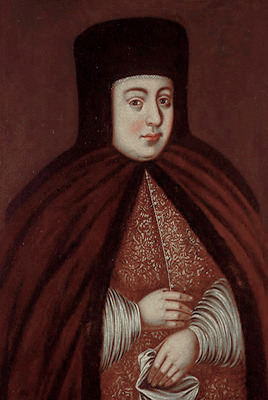


"Each Boyar, then, prepared his daughter for the grand presentation, hoping that the Tsar would choose his, but he had already chosen Natalia Narychkin. Nikon emphatically challenged Alexei's decision. Natalia was the daughter of a penniless Foreign Affairs official and a Russified Scotswoman: a tsar could not marry a partly foreign woman. Nikon eventually gave in, but not without obtaining from the Sovereign a promise that the future Tsarina would prepare herself for the wedding "in the true faith of the Orthodox Church" and take him, patriarch of all Russia, as her sole confessor. A wave of joy and youth broke into the Kremlin. Natalia was no beauty, but her laughing temperament and lively spirit made her charming. In the palace, now, Russian and Scottish folk songs were heard, which she sang while strumming a zither; and to alexei's great pleasure she also danced beautifully. The new Tsarina initiated her husband into western distractions; thus was founded the first Kremlin theater, where dances and concerts enlivened the long winter evenings. Alexei even invited a German theatrical company in 1672. The Tsar did not have the courage to completely transform the harsh life of the palace, but in order to prepare some reforms, he sent his ambassador, Potenkim, to Western Europe to study habits and Customs. The Diplomat reported that French customs were not good for Christians and that the Spaniards were "gypsies in disguise"."
The Tsarinas - The Women who made Russia | Vladimir Fedorovski.
(loose translation)
#tsar alexei i#tsar#tsar alexei#tsarina natalia#facts#more romanovs#tsarina#alexei and natalia#romanovs 2013#my own#my edits#my edit
38 notes
·
View notes
Text
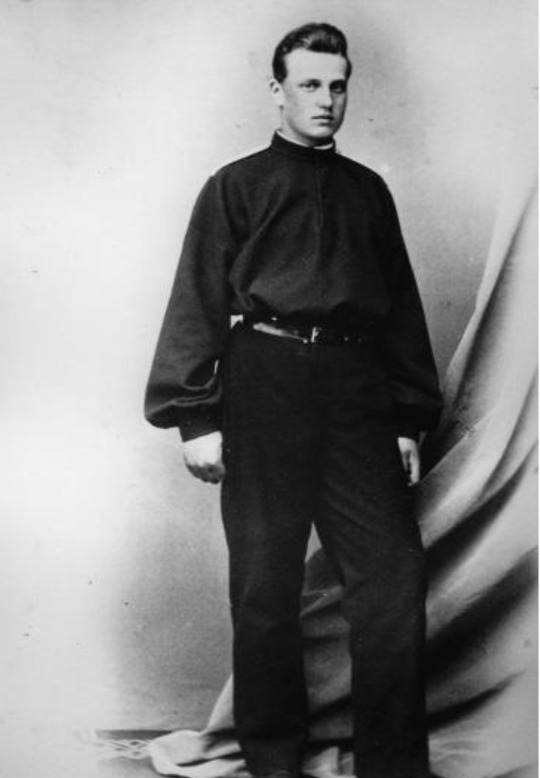

Grand Duke Alexey Alexandrovich in youth.
Grand Duke Alexey Alexandrovich (1850 - 1908)
Grand Duke Alexis was the fifth child and the fourth son of Alexander II and Empress Maria Alexandrovna. Alexis was Nicholas II's favorite uncle, as well as a favorite of Empress Maria Feodorovna (and a frequent dance partner of the Empress since Sacha did not like to dance. He also acted as a mediator between her and Sacha at the very beginning of their marriage, when they had differences.) He stood as one of Tsarevich Alexis' godparents.
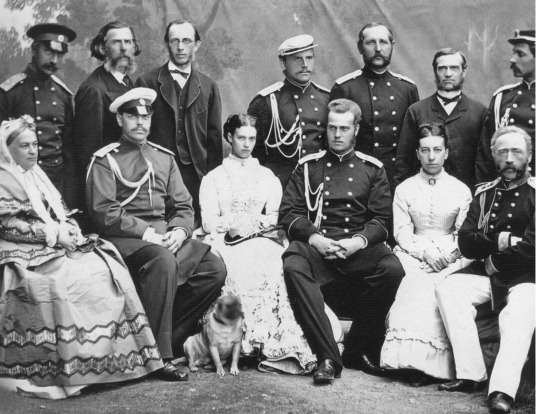

1. Maria Feodorovna sitting between Tsarevich Alexander and Grand Duke Alexis; 2. Grand Duke Alexis with his family, embracing his brother Grand Duke Sergei Alexandrovich
Alexey made a career in the Navy. Grand Duke Alexey rose through the ranks, holding many important posts. He was appointed General Admiral by his brother Alexander III as a reward for making a significant contribution to modernizing the equipment of the Russian navy. But his improvements might not have been enough. After the Russian defeat to the Japanese in the Battle of Tsushima, Alexey was relieved of his command for incompetence (he died just three years after this, at age 58.) It did not help that his expenses in jewelry for the beautiful women in his life had increased through the years, and he was suspected of corruption. He had acquired a reputation as a "man of fast women and slow ships." Of course, somebody had to pay for Russia's loss to Japan, and he was in the right place at the right time.
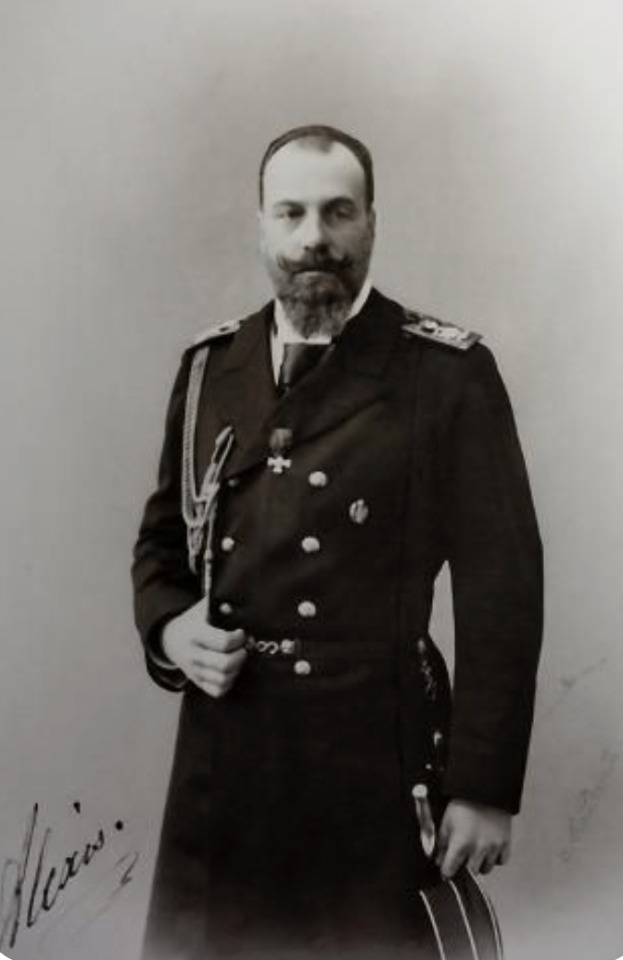
Admiral Grand Duke Alexei Alexandrovich
Was Alexey a hero or a rake? Neither, it seems. The following is the consensus of several authors and contemporaries who knew him well: He had a kind heart and would not intentionally hurt anybody. He was not a thief. He was not a plotter or acted against anybody for his own advancement, but he was, in fact, not very competent as an admiral and made a number of wrong decisions that had terrible consequences for the Russian naval forces.
Alexis was beloved by most of his family, although his cousin Grand Duke Alexander Mikhailovich, did not have anything good to say about him in his book "Once a Grand Duke;" Sandro paints Alexey as a hard-drinking, greedy, womanizing dilettante without any redeeming qualities. Sandro very much wanted Alexis' job and was well situated to get it; I don't know how objective he could be under those circumstances (Sandro's book is used as a source for much of what is written about the Romanovs, but inaccuracies and mistakes have been identified in the information it provides.)
Alexis suffered a broken heart early in his life. Although his affairs with beautiful women were notorious throughout his life, he is the only Grand Duke, son of a Tsar, who remained unmarried. His is a life of plenty but not a happy life.
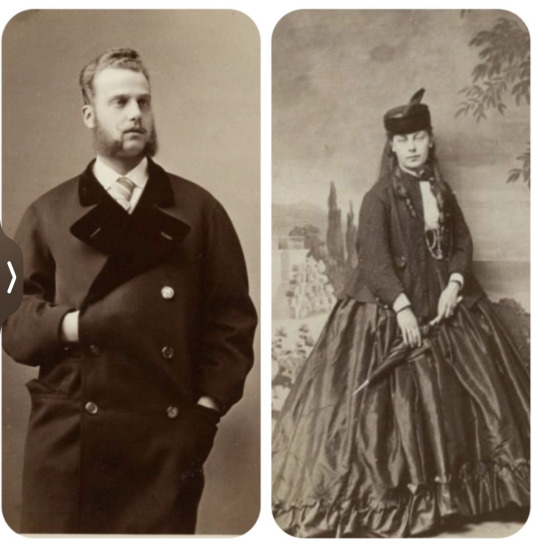
Grand Duke Alexei Alexandrovich and Alexandra Zhurovskaya
Alexei fell in love with one of his mother's ladies-in-waiting at age twenty. Her name was Alexandra Zhukovskaya; she was the daughter of a poet (who had taught the Imperial children) and not an aristocrat. Alexandra became pregnant. Alexis’s father, Alexander II, opposed the affair violently and said no when Alexis asked permission to marry. The Emperor also refused his son's request to grant the mother and unborn child a title. Some historians believe Alexey married Alexandra, and the Russian Orthodox church annulled the marriage at the Emperor's behest.

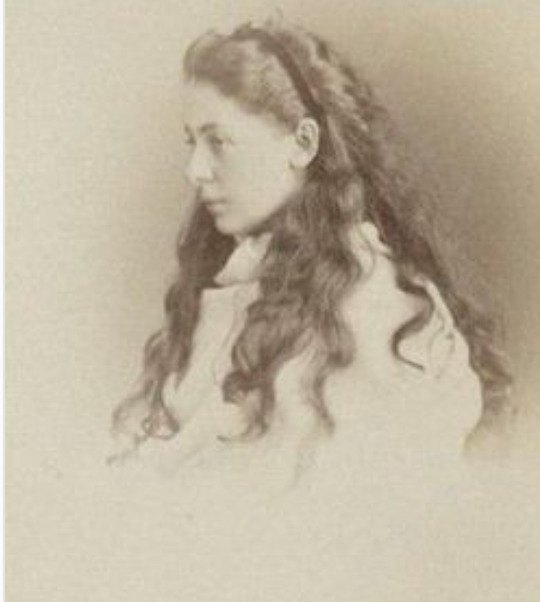
Alexandra Zuhrovskaya
There are letters in which Alexis begs his mother, Empress Maria Alexandrovna, to intercede so that he does not have to abandon Alexandra; they also declare his love for her. Alexander II sent Alexey on an extensive world tour (he was away from Russia for two years; his tour included a very successful visit to the United States.) Alexandra gave birth to their son while he was away. The Imperial family continued to put pressure on her until she terminated the relationship with Alexey. She was married off to Baron Christian-Henrich von Wohrmann and sent to live with him in Munich/Bavaria. Alexis never saw her again but did not abandon her and his son. He settled a large sum and a generous lifetime pension on Alexandra and made provisions for the future of the boy.
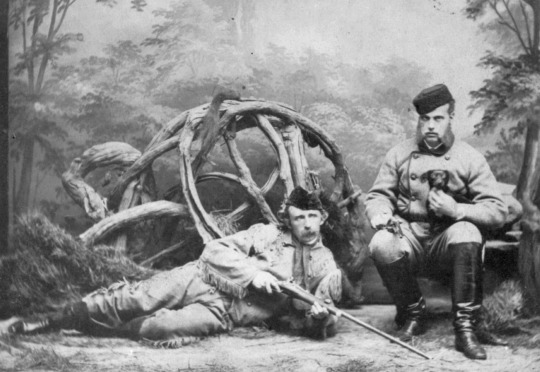
Grand Duke Alexander Alexandrovich with General Custer - the photo commemorates their "buffalo hunt."
Before her child was born, Alexandra had secured the title of Baroness Seggiano from the Republic of San Marino, with the right to pass it to her son. After Alexander II died and Alexey's elder brother was crowned Alexander III, Alexey's son was given the Russian nobiliary title of Count Belevsky and a coat of arms.

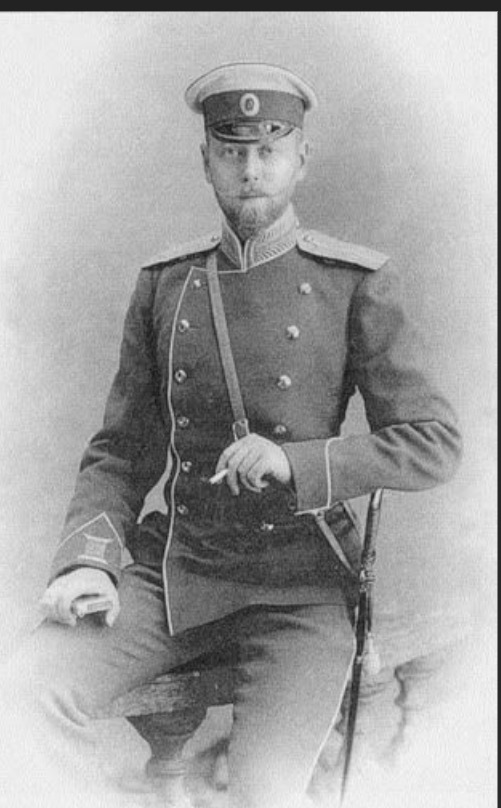
Grand Duke Alexis' son: Count Alexey Alexeevich Belevskiy-Zhukovskiy (1871–1931)
Count Alexey Alexeevich Belevskiy-Zhukovskiy (1871–1931), the Grand Duke's son followed a military career like all Romanov males. His first marriage (he married twice) took place in Ilinskoye Manor, the state of his uncle Grand Duke Sergei Alexandrovich, near Moscow. The Count acted as his uncle's aide-de-camp for many years. He was well-accepted in Imperial circles. There are several candid photos of Sergei and his wife Ella, where he can be identified (he looks more like his uncle Sergei than his father.) As far as we know, he never met his father (although I doubt that Grand Duke Sergei did not, at some point, arrange a meeting between his brother and his nephew.) Several of the Count's descendants live in New York City.
It is interesting to note that the major source of relentless opposition to Alexey's marriage to Alexandra and to the legitimization of his son was Emperor Alexander II, the same man who would have children with his much younger mistress, establishing a second family while his first wife was still alive, and who would bring that second family to live in the Winter Palace where his first wife resided and where she died. He married his second wife barely a month after Alexey's mother's death.
#russian history#romanov dynasty#imperial russia#Grand Duke Alexey Alexandrovich#Alexander III#Alexander II#Grand Duke Sergei Alexandrovich#Grand Duke Alexander Mikhailovich#Count Alexey Alexeevich Belevskiy-Zhukovskiy#Alexandra Zhukovskaya
77 notes
·
View notes
Text
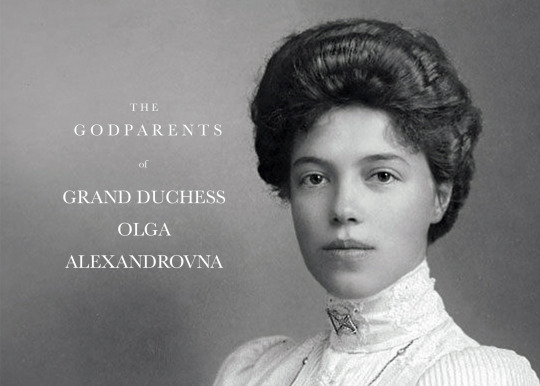
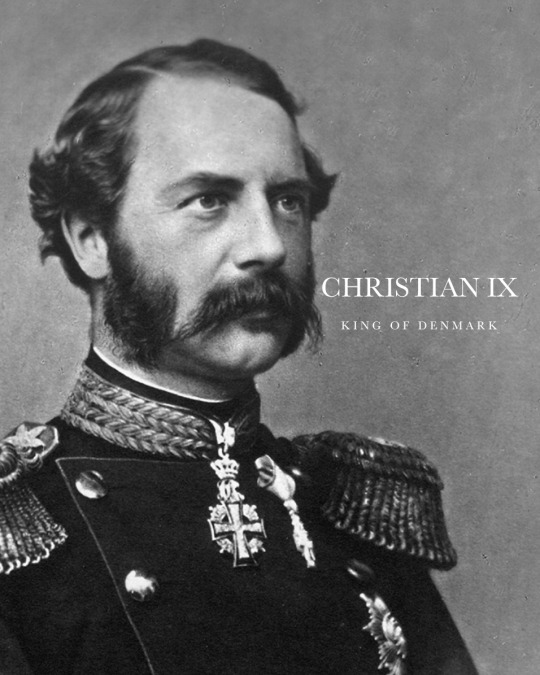
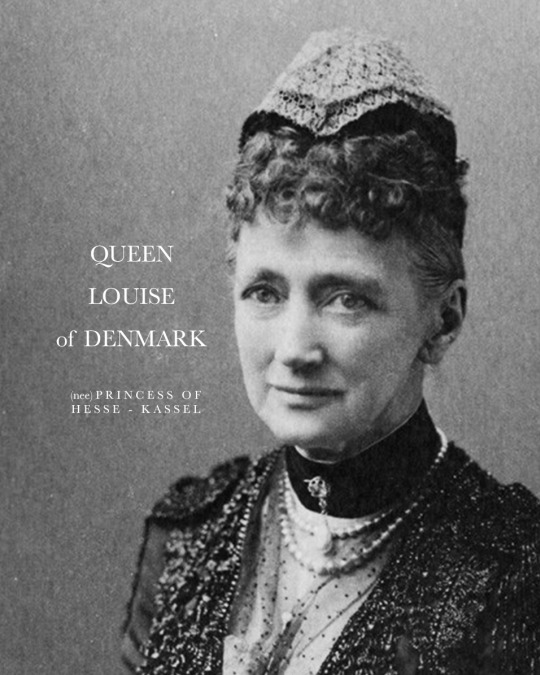



GODPARENTS OF GRAND DUCHESS OLGA ALEXANDROVNA
Grand Duchess Olga Alexandrovna, the youngest daughter of Emperor Alexander III of Russia, was born on 13 June 1882 at Peterhof Palace in Saint, Petersburg, Russia. She was christened on 23 July (Saint Olga's Day) in the Grand Palace Church, Peterhof by the Confessor of Their Imperial Majesties archpriest Bazhanov. Her godparents as listed:
KING CHRISTIAN IX OF DENMARK - her maternal grandfather, the Danish King was among her godparents. His initial unpopularity at the start of his reign, and the many years of political strife, where the king was in conflict with large parts of the population, his popularity recovered towards the end of his reign, and he eventually became a national icon due to the length of his reign. He was absent at the christening of his Russian grandchild.
PRINCESS LOUISE OF HESSE-KASSEL, QUEEN CONSORT OF DENMARK - his maternal grandmother was another of her godparents. Louise became the Queen consort of Denmark upon her husband’s - King Christian IX - accession in 1863. Through her six children, she was a grandmother of not only the future Tsar of Russia (Nicholas II, Olga's eldest brother), but also that of King George V of the United Kingdom; King Constantine I of Greece; King Christian X of Denmark, and King Harken VII of Norway. Like her husband, Louise was also absent at the christening.
GRAND DUCHESS OLGA NIKOLAEVNA OF RUSSIA, QUEEN CONSORT OF WÜRTTEMBERG - her great-aunt was one of her godparents. She was the younger sister of her late grandfather, Alexander II. Attractive, cultured and intelligent, she had been considered to be one of the most eligible princesses in Europe. In 1846, she married Crown Prince Karl of Württemberg. She was absent at the christening of her namesake.
GRAND DUCHESS OLGA KONSTANTINOVNA OF RUSSIA, QUEEN CONSORT OF GREECE - her aunt and namesake was named as one of her godparents. Olga Konstantinovna was the first cousin of her father Alexander III, being the eldest daughter of Grand Duke Konstantin Nikolaevich of Russia. At 16, she married King George I of Greece, the brother of her mother Maria Feodorovna. Queen Olga was a popular figure in Russia, and in Greece. She was present at the christening.
GRAND DUKE ALEXEI ALEXANDROVICH OF RUSSIA - her uncle was another listed godparent of the young grand duchess. A naval officer for most of his life, he had a significant contribution in the equipment of the Russian navy with new ships and in modernizing the naval ports. He was present at the christening of his niece.
Source
28 notes
·
View notes
Text
Edit finally done!
Thank you for the footage @foreverinthepagesofhistory 💓
#my edit#capcut#i love romanovsss#house of romanov#maria nikolaevna#grand duchess olga#tatiana romanov#anastasia nikolaevna romanova#tsar nicholas ii#tsarina alexandra#alexei nikolaevich
17 notes
·
View notes
Text
I have to share this fic... it's really good.
Alexei II by Cribman // link
Summary: Instead of abdicating for his younger brother, Nicholas II is instead pressured to abdicate in favour of his underage and haemophiliac son, Alexei. With Russia in the midst of a revolution during a war against the brutal onslaught of the Central Powers. The new provisional government must work with the new Tsar and his regent to heal the fractured empire before more damage can be done. With their popularity damaged almost to the point beyond repair. The senior members of the House of Romanov must begin to embrace political reforms to survive the turbulence that is surely to come.
#russian revolution#alt history#romanovs#romanov dynasty#romanov family#tsar nicholas ii#princess alix of hesse#alix of hesse#alexei nikolaevich#tsardom of russia#tsarevich alexei#fanfic#empress alexandra feodorovna#tsarina alexandra#otma#olga nikolaevna#tatiana nikolaevna#maria nikolaevna#anastasia nikolaevna#ao3 fanfic#fic rec#naotmaa#otmaa#maria feodorovna#empress maria feodorovna#princess dagmar of denmark#alexander kerensky#pavel milyukov#eugene botkin
23 notes
·
View notes
Note
Hey would you mind Could you give us a huge insight of Maria and Anastasia Nikolaevna's personalitys? in some rare quotes said by someone who met them both ?
I would love to read more facts and quotes about the little pair .
Hello! Of course! I'm going to split this into two parts: this part will be about Maria, and another post will be about Anastasia.
Here are some rare, lesser known quotes, about Maria Nikolaevna (or writings from Maria herself) that capture her personality well.
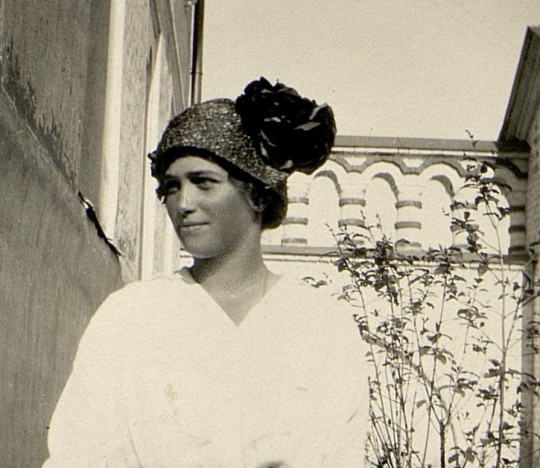
"Marie was kindness and unselfishness personified" - Olga Voronova, Upheaval
Letter from Olga to aunt Xenia - "1916 August 26th … Papa brings an attendant with him to dinner, and Mordvinov comes every evening and we torment and scare him. Yesterday we discharged the conductor and drew a beard, moustache and eyebrows with a burnt cork on Marie and put her on the train. Of course, he didn't recognize her, and he was terribly tormented when during a game of hide and seek in the dark, she ran into him in the corridor and rudely pushed him. He said that it was some kind of half-drunk conductor, and found her impudent, because we gave her cigarettes and she paced about importantly, smoking them." - George Hawkins, Correspondence of the Russian Grand Duchesses: Letters of the Daughters of the Last Tsar
"The other Grand Duchesses were still children. Marie Nicholatevna was a robust, well developed little girl with big blue eves, of a typical Russian beauty. She had an excellent memory and every time somathing to be remembered her sisters always turned to her. - Alexander Spiridovitch, Last Years at Tsarskoe Selo, Volume 2
"One day the little Grand Duchess Anastasie was sitting in my lap, coughing and choking away, when the Grand Duchess Marie came to her and putting her face close up to her said, " Baby, darling, cough on me." Greatly amazed, I asked her what she meant, and the dear child said, " I am so sorry to see my dear little sister so ill, and I thought if I could take it from her she would be better." Was it not touching?" - Margaretta Eagar, Six Years at the Russian Court
The following are from George Hawkins, Alexei: Russia's Last Tsesarevich - Letters, diaries and writings - volume 1:
Note from Alexandra to Alexei, dated 1 December 1914: "Don’t tease Maria."
Letter from Tatiana to Alexei, Spring-Summer 1916 "...Taube [patient] (the one with no legs, do you remember him?) and Marie yell so you’d think the whole infirmary can hear them, they make such a fuss, and they all shout and argue. It is awfully funny to watch them."
Letter from Maria to Alexei after Alexei asked Maria to draw Joy the dog: "16 December 1916. My dear darling Alexei! I don’t know how big you want me to draw Joy, but I will give it a go, and if it doesn’t turn out, I can do it again…. I have just tried to sketch Joy but it didn't work out because I don’t really remember what he looks like and it ended up looking nothing like him, so I won’t send it to you. When you bring Joy to me, then I will be able to draw him."
The following are from Joseph T. Fuhrmann, Nicholas II and Alexandra Feodorovna. The complete Wartime Correspondence April 1914 – March 1917:
Alexandra to Nicholas "[January] 24 1915 …Marie stands at the door & alas! picks her nose..."
Alexandra to Nicholas "January 2 1916 …Baby began writing his first diary yesterday. - Marie helped him, his spelling is of course queer."
Alexandra to Nicholas "April 2 1916 …Marie is in a grump mood & grumbles all the time & bellows at one, she & Olga have B. [Codeword for 'Becker', meaning their periods]"
The following are from George Hawkins, Correspondence of the Russian Grand Duchesses: Letters of the Daughters of the Last Tsar:
Fanmail letter from American girl Dolores Sybilla Adam to Olga and Tatiana: "Jan 24 1913 …I cannot ever thank you enough for the picture that was sent to me… But tell me is Marie the only one that ever smiles…?"
Letter from Maria to Tatiana: "Tatiana my darling. Thank you very much for the note and good wishes. Although I have not seen my husband [an inside joke amongst the sisters, most likely referring to their crushes] yet, I did see him in a dream. Today we will go to the Grand Palace and I hope that Provotorov (i.e.: your husband) will tell us a lot of nonsense. It’s boring without you. I hope that I will see ND [Nikolai Dmitrievich Demenkov, her crush] again… 9th Dec. 1914"
Letter from Maria to Olga Voronova: "Dec 29th 1914 …The other day we were at a Christmas party at Mama's nanny school. There are now many children of the reserves, so awfully sweet! We gave them all toys and they rejoiced in them, and each showed his nanny what he received. They are so appetising. Some are very small, some are even only two weeks old. I really love young children, and play with them, holding them in my arms. Do you like little children?"
Letter from Pierre Gilliard to Maria: "10 December 1916 …Be careful, Maria Nikolaevna, if you continue to tease me, I will avenge myself!!!!"
Letter from Olga to Nicholas II: "16 August [circa 1904] - Peterhof. Dear Papa …Maria went to sleep in the afternoon, and Anastasia crept under the mattress and slept there with Maria on top of her. When she got up we all laughed, and so did she." - Maylunas and Mironenko, A Lifelong Passion
Letter from Alexandra to Nicholas: "14 June 1915 - I congratulate you with all my loving heart for our big Marie’s 16th birthday… Pity you are not here. She enjoyed all her presents, I gave her her first ring from us made out of one of my Buchara diamonds. She is so cheery and gay today." - Maylunas and Mironenko, A Lifelong Passion
Letter from Anastasia to Nicholas: "26 August 1915 …I am sitting on the couch near Alexei as he is having dinner with M. Gilliard, while Maria is running around like crazy. …This morning [Doctor] Ostrogorsky came to see me, but Maria and I were still in bed, then Maria covered herself with the blanket, then he entered and listened to my [lungs], but when he finished, I quietly uncovered the blanket and Maria had to climb out, and she was very embarrassed." - Helen Azar, George Hawkins, Anastasia Romanov: The Tsar's Youngest Daughter Speaks Through Her Writings
"When I first knew the Grand Duchess Marie, she was quite a child, but during the Revolution she became very devoted to me, and I to her, and we spent most of our time together — she was a wonderful girl, possessed of tremendous reserve force, and I never realised her unselfish nature until those dreadful days. She too was exceeding fair, dowered with the classic beauty of the Romanoffs; her eyes were dark blue, shaded by long lashes, and she had masses of dark brown hair. Marie was plump, and the Empress often teased her about this; she was not so lively as her sisters, but she was much more decided in her outlook. The Grand Duchess Marie knew at once what she wanted, and why she wanted it." - Lili Dehn, The Real Tsaritsa
"Count Grabbe says of the Tsar's third daughter, clearly his favorite: "With her large gray, luminous eyes, her classical features, and languorous movements, she was the true type of Russian beauty, the most good- natured and artless of the four sisters, with endearing qualities which drew people to her." More outgoing than her older sisters, Maria Nikolaievna loved children and used to talk to soldiers about their families. She knew the names of many of the Koncoy Cossacks and Standart sailors, took an interest in their affairs and managed out of her $9 a month allowance to send little gifts to their children. With all her gentle ways, she was strong and solidly built, like her grandfather Alexander III. Her sisters called her "Mashka" and sometimes "Little Bow-wow."" - Count Alexander Grabbe, The private world of the last Tsar, in the photographs and notes of General Count Alexander Grabbe
"The Grand Duchess Maria Nicholaevna was a young wcnnan of broad build. She was very strong; for example, she could lift me up from the ground. She had lighter hair than Tatiana, but darker than Olga. (Olga Nicholaevna had brown hair, of a golden shade, and Maria Nicholaevna had brown hair with a light shade.) She had very nice, light grey eyes. She was very good looking, but got too thin after her illness. She had a great talent for painting and always liked to exercise it. She played the piano indifferently and was not as capable as Olga or Tatiana. She was modest and simple and probably had the qualities of a good wife and mother. She was fond of children and was inclined to be lazy. She liked Tobolsk and told me that she would be quite happy to stay there. It is quite difficult for me to tell you whom she preferred — her father or her mother." - Examination of Sidney Gibbes, The Last Days of the Romanovs
"The Grand Duchess Maria was eighteen ; she was tall, strong, and better looking than the other sisters. She painted well and was the most amiable. She always used to speak to the soldiers, questioned them, and knew very well the names of their wives, the number of their children, and the amount of land owned by the soldiers. All the intimate affairs in such cases were always known to her. Like the Grand Duchess Olga, she loved her father more than the rest. On account of her simplicity and affability she was given the pet name by the family of "Mashka." And by this term she was called by her brother and by her sisters." - Examination of Commissar E. S. Kobylinsky, The Last Days of the Romanovs
Hope you found it interesting or learnt something new! Will post Anastasia's a little later :)
#Maria Nikolaevna#Maria Romanov#q#ask#answered#Romanov sisters#Romanov family#Imperial Russia#sources
45 notes
·
View notes